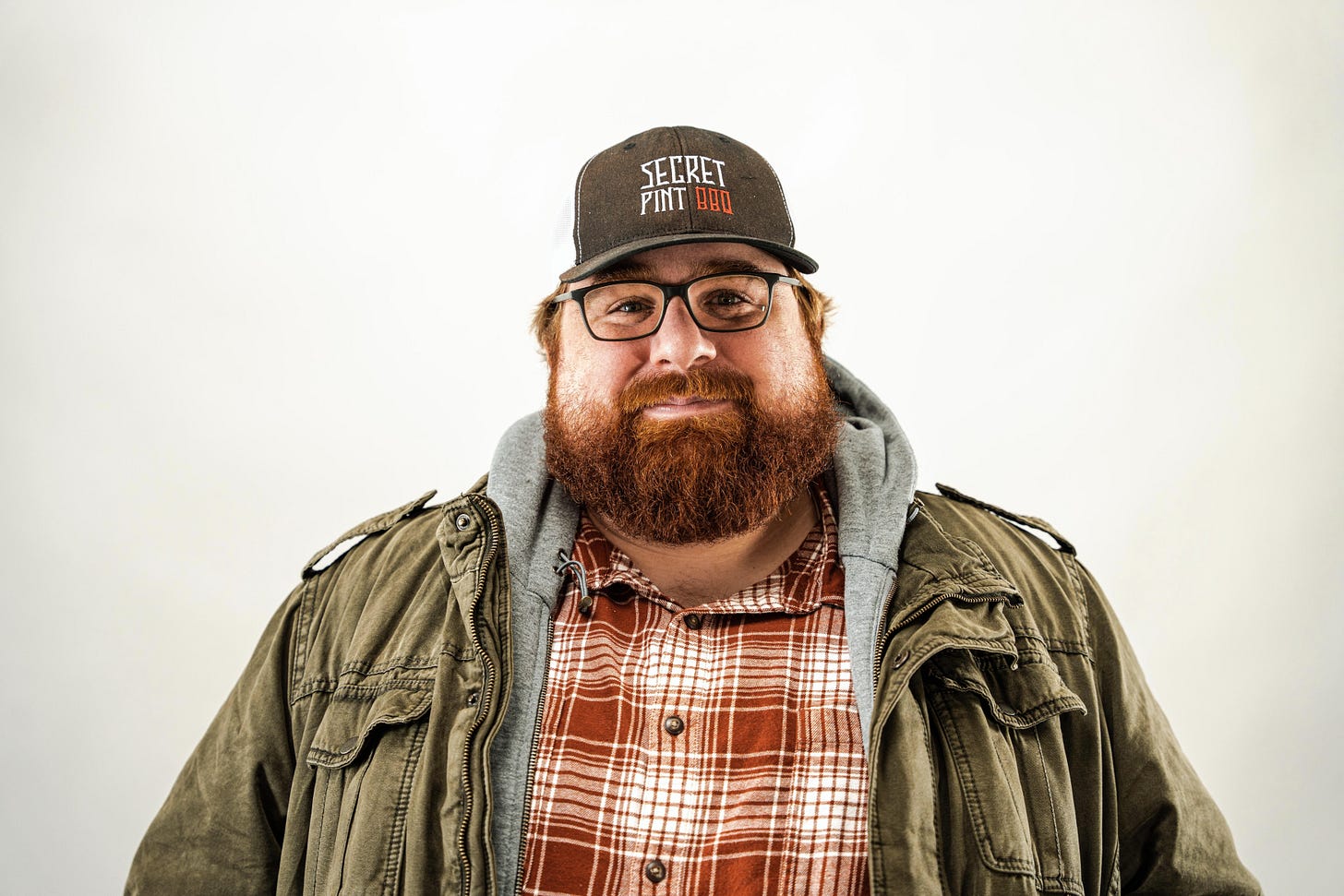He made Georgia's Top Ranked BBQ Restaurant, then Walked Away!
He’s chasing a place where passion and partnership finally match.
Barbecue is built on time. It’s built on long nights beside a firebox, on oak logs that still radiate heat long after the pitmaster has gone home. The same might be said for reputation; it lingers, even when its maker steps out of the spotlight.
That’s the position Bryan Hull finds himself in today.
Hull became one of the most recognizable faces in Atlanta barbecue over the last two years. His work helped a young restaurant achieve what few outside Texas ever do, recognition from Texas Monthly as one of the top three Texas-style barbecue destinations outside the Lone Star State. He didn’t arrive there by accident. He led operations. Built recipes. Managed the pit room. Trained teams. Perfected systems. He was in before sunrise and still standing when dinner service wrapped.
The business performance followed the same trajectory. In one year, the restaurant tripled its prior performance, and Hull projected five-to-six-times growth heading into this season. Success like that usually comes with contracts, ownership shares, and a level of stability that protects everyone involved.
This one didn’t.
Behind the line, the story looked very different. Hull describes a leadership structure where his commitment was taken for granted, where his voice became easy to ignore, and where the work he contributed, the work everyone tasted, was often credited somewhere else. Like many pitmasters, he kept going. Until he couldn’t.
One morning, everything changed; Hull didn’t storm out or slam a door. He came in early, set up his team for success, ensured service would run smoothly, then walked away before opening. It was the kind of departure that tells you he cared more about his crew and customers than the building he was leaving behind. When he returned the next day, ready to rebuild communication and boundaries, he found the same patterns waiting for him. The message was clear. Nothing would change. So he did.
Hull left the brand he helped build, not in anger, but with clarity. He made a choice pitmasters rarely allow themselves: he protected his mental health over the myth of barbecue martyrdom.
There is a romanticized version of this business, one where passion is payment and community is compensation. It’s a good story until it becomes a trap. Hull’s story highlights a truth rarely said out loud: Barbecue success is often measured by the food. Barbecue failure is almost always about the system behind it.
On paper, he was indispensable. In reality, he was replaceable, until everyone realized he wasn’t. They even tested a name change for a brief 48-hour window, a sign not of reinvention but of disorientation or politics yet to be addressed. The community took notice. The story spread.
Meanwhile, Hull received messages from Michelin-recognized chefs, business leaders, and pitmasters across the country, reminding him that the respect he’d earned wasn’t tied to a single location.
They weren’t following the brand.
They were following the pitmaster.
It’s easy to overlook the business risks that live beneath barbecue’s glowing reputation. The industry is volatile: high labor needs, fluctuating meat prices, thin margins, and relentless physical demand. Pitmasters like Hull operate as chefs, mechanics, managers, and therapists, often simultaneously. Yet while they feed communities, their own well-being can get lost in the smoke.
Hull’s decision to leave, without safety nets, without a guarantee, is a reminder of barbecue’s most overlooked truth:
Fire builds things. Fire also consumes them.
Knowing the difference requires courage. Where does he go next? That depends on who he chooses to build with. Hull’s skill is portable. His identity is not tied to one address. And based on the reaction from his peers, opportunity is already forming around him like heat around a brisket in a well-sealed pit.
He won’t need billboards to explain what he brings. His reputation has already been carved into Atlanta’s barbecue landscape, not with marketing, but with results. Barbecue fans love a comeback story. They love a survivor. They love someone who understands the grind and still wakes up ready to tend the flame again. They’ll get that with Hull. Because for all the ways this business can bruise a person, his love for the craft remains intact.
He’s not chasing fame.
He’s not chasing lists.
He’s chasing a place where passion and partnership finally match.
That’s where the next great restaurant starts, not with a name above the door, but with someone standing behind the pit, determined to build something better than what they walked away from.
The fire hasn’t gone out. It’s just waiting for the next spark.




Such a sad story to hear . The food was amazing and can’t wait to hear what is next forBryan and Tyler. Met so many raving fans at the restaurant waiting in line and introduced several to one of the best in BBQ.